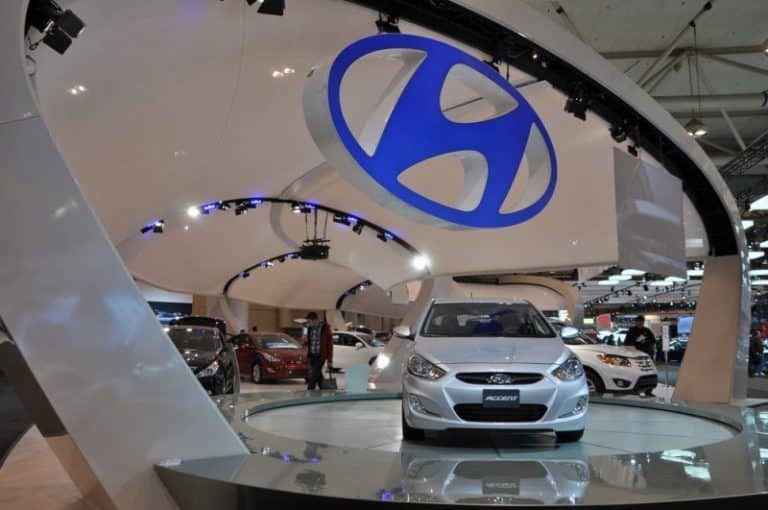Does Hyundai Accent Have A Turbo? (Explained)
Who doesn’t love an efficient car? Anyone wishing to buy a vehicle focuses on the car’s performance, which is the engine’s capacity, as it determines a car’s efficiency.
Turbocharged motors are a well-known engine type due to their power and efficiency. Having this engine in a Hyundai Accent plus its good performance will be fantastic.
However, does the Hyundai Accent have a turbo?
The Hyundai Accent has a four-cylinder engine and turbo diesel in some models. Also, it uses a continuously variable valve transmission type to power the front wheels. It operates a continuous variable valve timing to adjust intervals and accelerate car performance. This four-cylinder engine is fuel-efficient. Additionally, it is a reasonable choice for this subcompact car, facilitating simple navigation.
Is the Hyundai Accent Turbo?

The Hyundai Accent isn’t Turbo but uses a four-cylinder engine to ensure smooth handling on the road.
The four-cylinder engines maximize fuel efficiency as it only needs minimal fuel explosion for combustion.
Some Hyundai models like the Hyundai Accent Sedan come with Hyundai accent doors ranging from four to five depending on gasoline and fuel engine.
The Hyundai Accent Getz also is a four-cylinder engine but can be turbocharged.
Individuals who love to feel in control while driving can opt for a speed manual transmission to manage the gearbox themselves.
Individuals who want the car’s technology to perform all actions can opt for a manual-speed automatic transmission.
If you consider the turbocharger a necessity, you can install a turbocharger in Hyundai Accent to feel its capacity.
Several people have considered turbo engines the next best thing ever since hearing about their performance.
They’re not wrong either, as turbo engines are powerful and beneficial to cars.
For example, having turbochargers in Hyundai Accent makes car engines weigh below the regular engines but still deliver efficient power.
What Kind of Engine Is in a Hyundai Accent?
The Hyundai Accent is a four-cylinder engine, and this engine type comes in all Hyundai Accent models.
This four-cylinder engine delivers 130 horsepower, sufficient for drivers who desire better fuel economy and relaxed car drives.
The four-cylinder engine varies from a gasoline engine to a diesel engine. It depends on the Hyundai Accent door and other features. However, this engine type is also efficient.
It works by the piston action through four movements, either up or down. It is a continuous cycle that begins again once the initial sequence completes.
The continuous variable valve automatically transitions between gear movements for speed manual transmissions.
The four-cylinder engine is just as powerful, durable, and productive. It detaches each piston movement from the other, minimizing carbon monoxide emission by separating gas from the fuel.
It also lessens the effect of incombustible fuel discharge through exhaust pipes from a piston’s upward or downward movement.
A four-cylinder engine’s intake valves assimilate air and fuel for the engine’s cylinders.
The piston compresses this mixture within the engine’s cylinder, and the spark plug stimulates the motor to work.
Air is crucial for combustion, so the infusion and exhaust valves receive and eliminate emissions from car motors.
Timing is a fundamental factor to consider in this condition as it affects the motor.
Hence, a variable valve timing is necessary to exempt the four-cylinder engine from limitations allowing it to perform efficiently.
The valve timing ensures engines work smoothly to provide optimum performance, and here’s how. Car engines require maximum air volumes, especially when you drive at high speed.
But the intake valves may only take in a minimum amount of air into the combustion chamber and shut, minimizing efficiency.
In addition, when the exhaust valve stays available for an extended duration, issues arise at the lower engine’s acceleration.
The opening of both valves results in the crashing of both operations.
This problem results in the escape of unburned fuel to the motor, which isn’t supposed to be so, meaning it causes further complications.
The valve timing plays a significant role here by adjusting the intervals of both valves to absorb and remove air efficiently.
Also, you can optimize this timing feature for different engine accelerations.
Is Accent CRDi Turbo?
The Hyundai Accent CRDi is a turbocharged engine with a variable geometry turbocharger. This turbo extension boosts air optimization for better combustion and power yield.
The CRDi is a common rail direct fuel injection that allows the forthright fuel injection into engine cylinders from a common rail.
Hyundai Accent CRDi is not your regular subcompact car because it is reliable, more fuel-efficient, easy to maneuver, and the customers love it!
Fortunately, the Hyundai Accent CRDi isn’t the only turbocharged motor in the Hyundai group.
The super aero city, a heavy-duty bus, also has a turbo-intercooler engine for fuel optimization.
Turbochargers work by assimilating massive volumes of air and compressing the mixture for engine ignition.
A turbocharger uses turbines and compressors to do its work. A snail-shaped lodge covers the turbomachine, and during the fuel combustion in engines, eliminated exhaust gas goes into the turbine.
These exhaust emissions enter at a high force to rotate the turbine, which spins the compressor at high speed as they are connected.
The stark contrast between turbocharged engines and regular car engines is the usage and entry of air.
Turbo engines employ removed exhaust emissions to take additional oxygen into the valves, while standard engines depend on the natural air force to absorb oxygen.
This difference makes a turbo faster and more powerful.
You can add turbos to any car engine, either subcompact cars like the Hyundai Accent Sedan or the Hyundai Accent 3-door Getz hatchback or heavy-duty buses like the super aero city.
A turbo engine needs a turbo timer control to perform better as they help the engine operate for a while before turning off.
However, turbochargers incite a large volume of heat due to the massive pressure they work with; hence they need to be cooled to avoid complications.
The oil serves as a lubricant and coolant for turbochargers, just like the intercooler.
The turbo timer control maintains the engine’s interval performance for oil circulation to ensure cooling, as overheating can severely affect the engine.
However, this feature doesn’t come standard equipped. So if you feel your car requires one, you can always install a turbo timer control kit.
The auto turbo timer is equipment that maintains a car engine operation for the preset time to ensure it executes the necessary cool-down interval to avoid untimely turbo damages.
Many cars require this time control kit, mainly if they use it for heavy-duty tasks. This turbo timer comes in an LED digital display set in your instrument panel for easy visibility.
Auto turbo timers in LED digital displays use less energy and are very bright and clear.
Do Hyundai Accents Last Long?

A Hyundai Accent lasts about 200,000 miles. In estimation, 15 years with sufficient care.
All cars will work better when you properly maintain them, and a few ways to do that include:
- Inspect and adequately inflate car tires
- Change oil regularly and use manufacturer-recommended oil and fuel type to avoid complications.
- Have regular maintenance check-ups with a professional mechanic
Conclusion
The Hyundai Accent is a fantastic car from the Hyundai company with four-cylinder engines and a turbo in CRDi models.
You can rest assured of efficient engine performance and smooth handling with this car as it has the necessary features you need.
Also, you can install some elements that are not standard equipped and buy turbo timer control kits for your vehicle if you need one.






